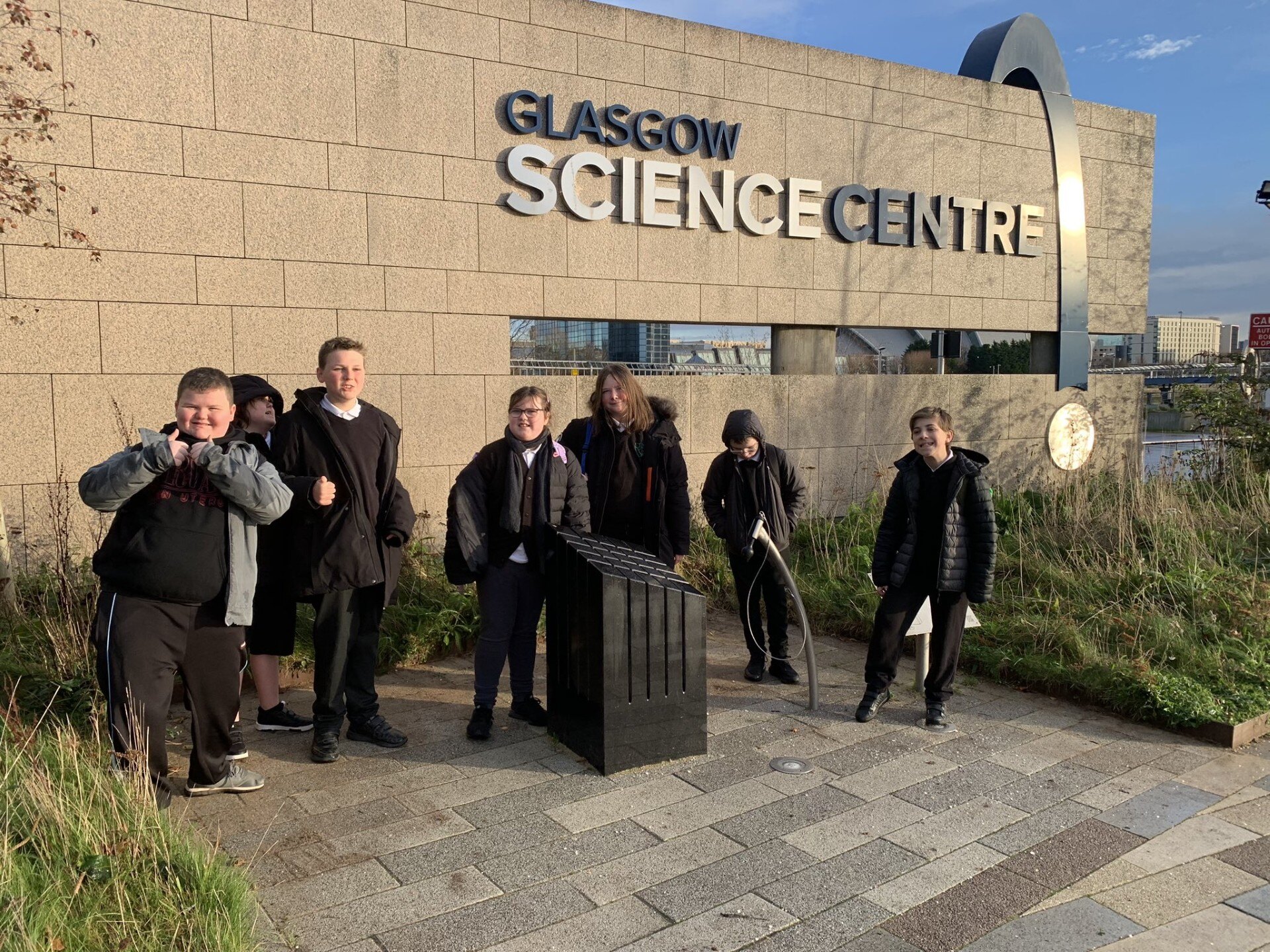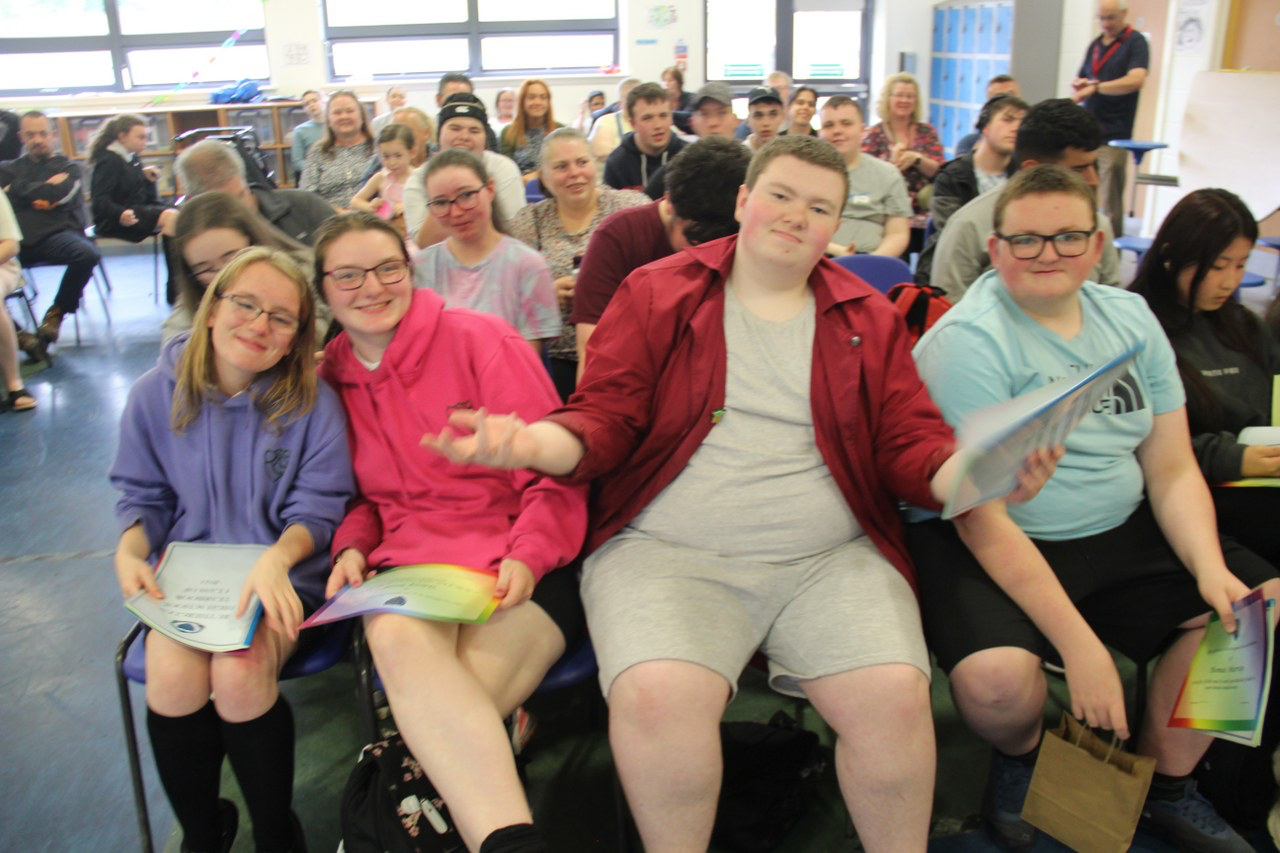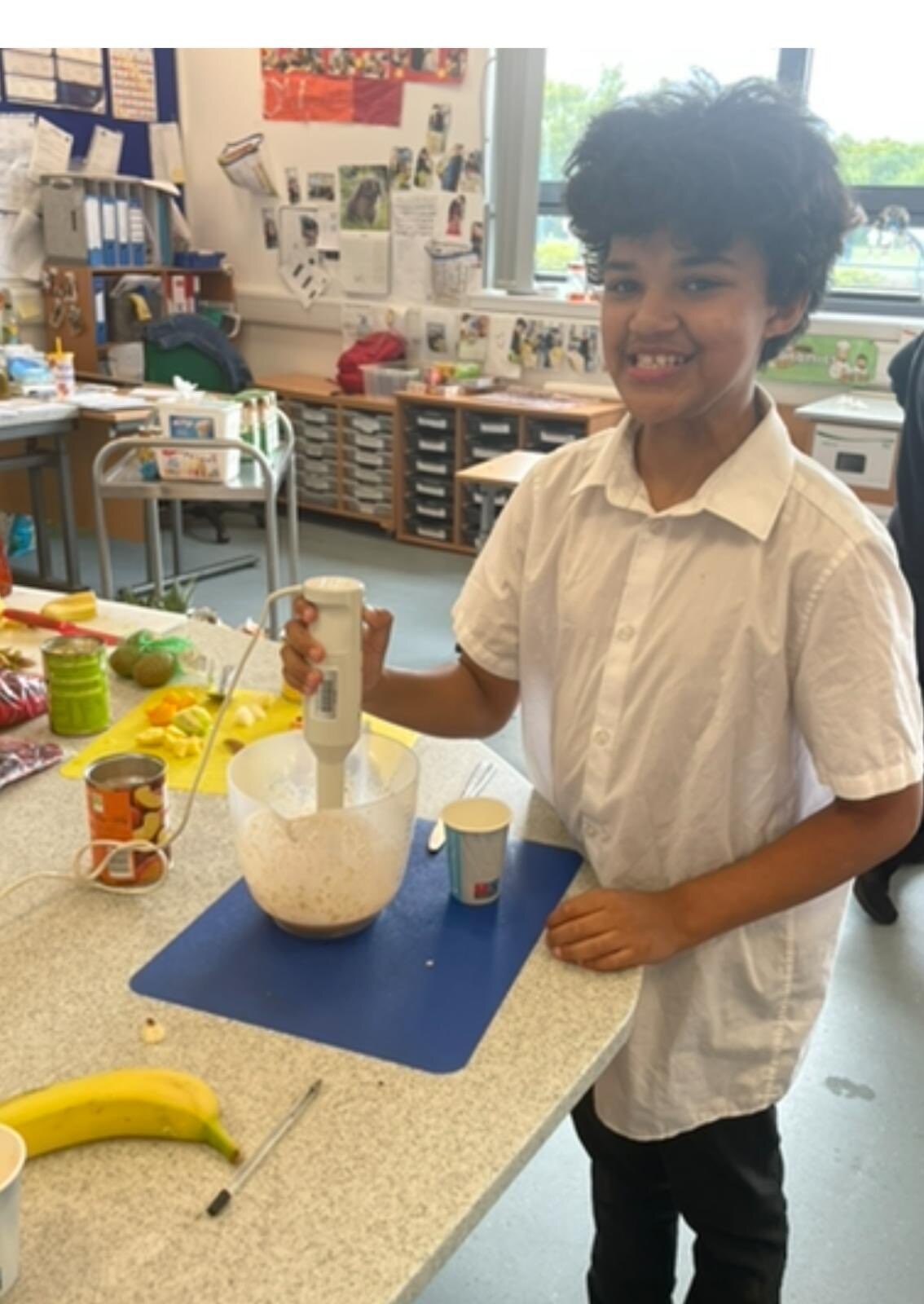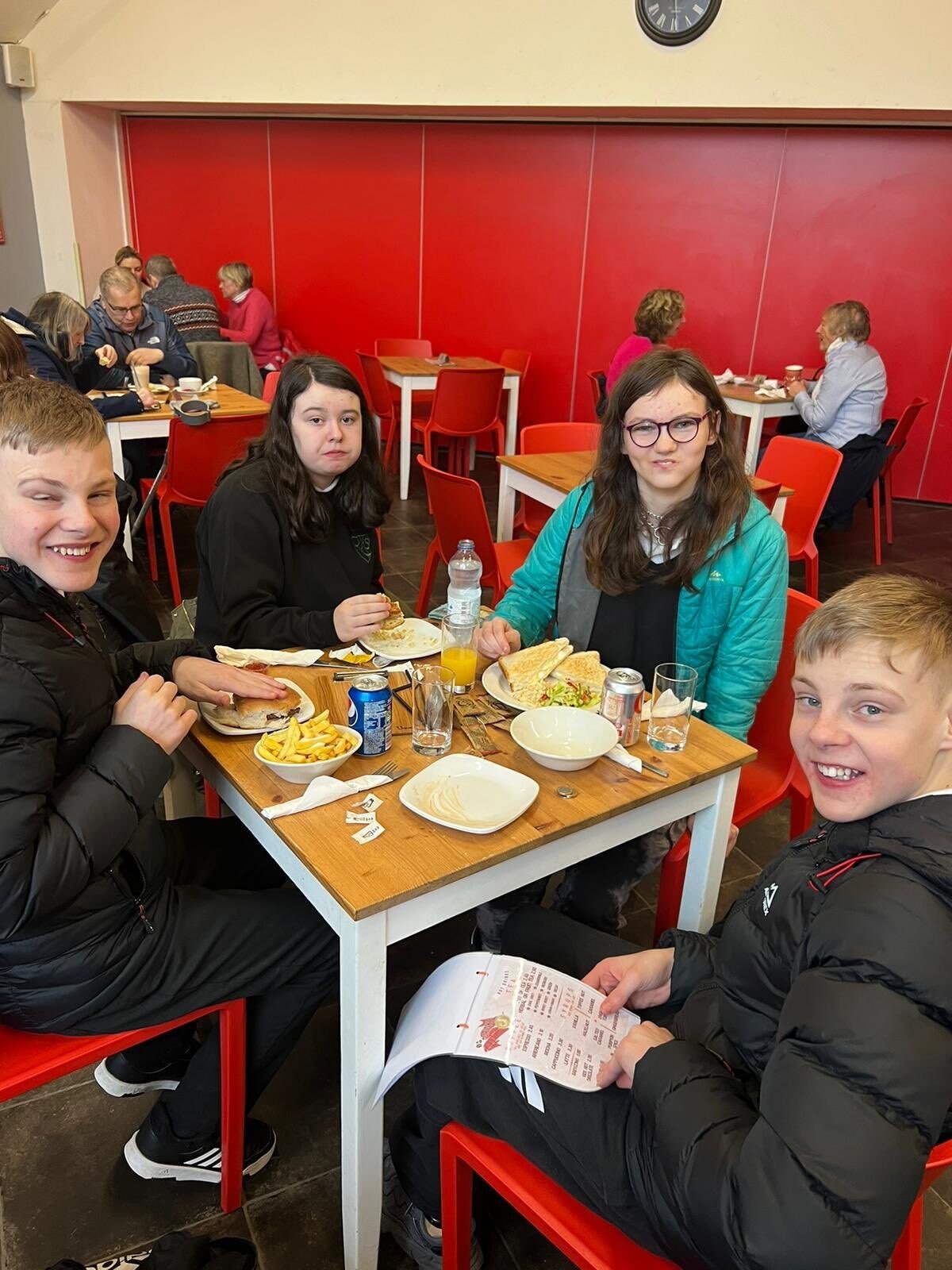Transitions


We endeavour to ensure a smooth transition for pupils.
All pupils who attend Rutherglen High are involved in a comprehensive induction programme where regular liaison takes place with primary schools and units. The Principal Teacher with responsibility for S1 works closely with school.
Throughout the school year, subject teachers visit schools to get to know the pupils. In addition to the induction programme, P7 pupils are encouraged to visit the school café, which provides them with the opportunity to become familiar with their new surroundings and to meet staff and pupils.
An information session is held for new S1 parents in January.
School staff visit all associated schools to talk and get to know the pupils prior to transfer to Rutherglen High.
Our S4 and S5 pupils receive "buddying" training. On arrival at Rutherglen High, each new first year is teamed with senior pupils who will support the pupil in transition.
All Primary 7 pupils attend a two-day induction in June. An extended transition programme also takes place from March through to June with parents and teacxhers.
Throughout the year pupils are invited to various events held within Rutherglen High:
February/March: Café Visits
March: Health and Wellbeing
April: Literacy and Expressive Arts
May: Numeracy and Technologies
June: Two Day Induction


Pupils normally transfer from primary to secondary school between the ages of 11 ½ and 12 ½, so that they will have the opportunity to complete at least 4 years of secondary education. Arrangements are made by the school to transfer children to the associated secondary school as determined by their home address. Parents of P7 children will be informed of the transfer arrangements made for their child to attend secondary school.
We will also provide you with information at this time and on events designed to support P7 children before they move onto secondary school.
Senior Phase - National Qualifications
In S4 – S6, pupils undertake a range of SQA units specific to their needs. Scottish Qualifications Authority (SQA) is one of the four partner national organisations involved in the Curriculum for Excellence. It works with partners on all strands of the development. SQA has joined with Universities Scotland, QAA Scotland and the Scottish Government to create the Scottish Credit and Qualifications Framework or SCQF.
Every Scottish qualification is allocated a level and credit value within this framework, which all partners have agreed to recognise. There are the many qualifications often imperfectly referred to as vocational, though these are frequently stepping-stones for students at Scottish Colleges of Further Education to pursue one- or two- year programmes tailored from a wide-ranging catalogue of National Units. The actual programme may be very rigidly prescribed or be entirely freely chosen by the young people to meet individual needs.
The SQA have recently produced new qualifications which have clearer focus on skills development and a greater emphasis on deeper learning by encouragement for young people to think for themselves; to apply and interpret the knowledge and understanding they have developed and to demonstrate the skills they have learned.
Options
Options are an integral aspect of curricular provision for all students from S4 onwards. Options allow pupils to pursue courses in which they have a personal aptitude/interest. Prior to choosing options, pupils will have the opportunity to take part in an Induction programme. This will involve input from subject specialists, Skills Development Scotland and Colleges. As part of this process an option information booklet will be issued to all pupils/parents.
Options are chosen at the end of S3 and pupils follow their chosen courses for two years.
Options: Art Music Drama ICT Technical Science Social Subjects Duke of Edinburgh Award French Spanish DIY Health & Wellbeing Home Economics (S6)
In S4, pupils choose 4 subjects from the above list and in S5 & S6 this reduces to 3 subjects. Pupils study the subject for 2 periods a week. For more information regarding the S4/5 /S6 curriculum please see the S4/S5/S6 Curriculum Handbook.
Severe and Profound Needs
Rutherglen High School’s provision for learners with Severe and Profound Needs follows the guidelines as set out in the South Lanarkshire document “Framework for Supporting Pupils with Severe and Profound Learning Needs”
Young people who would benefit from a highly support learning environment are identified at transition through consultation with Primary Headteachers, Educational Psychologists and parents. Pupils in supported classes benefit from an adapted secondary school curriculum with emphasis on supporting communication and promoting daily living skills. Provision is also made to incorporate the daily exercise programmes in response to physical and sensory needs of the individual pupils, under the direction of physiotherapists and occupational therapists, where appropriate.
While the core subjects (English, Maths, Health & Wellbeing and Independent Living Skills) are delivered in the same classroom, pupils also access a secondary school timetable in various practical classrooms around the school. Opportunity is also given in many areas of school life for all pupils to socialise and work together.

Developing the Young Workforce
Work Experience is an important part of the S4-S6 curriculum. In S4, some pupils will have the opportunity of a work experience placement. In S5 & S6 some pupils will have the opportunity to further work experience placements.
Rutherglen High has a full Developing Young Workforce (DYW) Programme which allows for individual progression at each stage for every pupil. Rutherglen high has built up excellent links with many businesses. We believe that DYW has a very important role to play in preparing pupils for post-school life.
Work Experience
Some pupils from S4-S6 have the opportunity to participate in a work experience placement. All placements are agreed upon after discussion with pupils, parents and staff and are dependent on individual pupil’s needs, abilities and interests. College placements and possible career choices are also taken into consideration when choices are being made about work experience placements.
The Work Experience programme is overseen by our Developing the Young Workforce PEF Principal Teacher. This involves making new links with businesses and maintaining links with existing participating businesses, keeping pupils and parents informed of opportunities for placements, talking to pupils about career choices, arranging any Health & Safety checks wherever necessary and arranging the necessary paperwork. Preparation for work experience (Health & safety, dress code, career choices, etc) takes place at allocated times throughout the year with the school’s World of Work teacher during DYW class. During their work experience pupils keep a record of their activities through a Work Experience Diary. This provides useful feedback to school and parents about the placement and also serves as a valuable source of self-evaluation for each pupil to reflect upon both during their placement and on their return to school.
College
Rutherglen High School offers a multitude of college options for senior pupils. The school has strong links with a range of colleges: New College Lanarkshire (Motherwell Campus), South Lanarkshire College, Glasgow Kelvin College (Easterhouse and Haghill) and Glasgow Clyde College (Langside and Cardonald). Rutherglen High School believes that college is an integral part of a student’s whole education. College provides students with important skills and qualifications that will help them in post-school life. College is also a very successful destination for many of our students when they leave school.
Most pupils from S4–S6 have the opportunity to attend one of the college campuses mentioned above. Programmes are dependent on individual needs, aspirations and abilities and decisions are made after discussion with pupils, parents and staff. There is careful consideration given to progression of skills and certification prior to allocation of placements. Possible future post school placements are also given consideration when advising pupils on college choices.
Management of college provision is the responsibility of the Principal Teacher (S5 and S6). Parents are contacted to update on concerns or issues which arise throughout the year. The Principal Teacher is available to discuss reports and options at Parents evenings throughout the year.
Lunch is either purchased in the college canteen or a packed lunch is provided by the school. Pupils who have demonstrated a responsible and mature attitude are allowed to leave Langside Campus at lunchtime – after parental permission has been given and after an initial settling in period.
Glasgow the Caring City – Skills Barn
The majority of our S3-S6 pupils attend Glasgow the Caring City (GCC) one morning per week. The Skills Barn was set up to provide people in Glasgow with practical life skills to enable them to reach positive destinations. There are a wide range of activities available to help young people develop important community and life skills, joining in with visual and functional activities to up-skill them for their future lives. Staff also assist pupils to understand the wide range of factors that feed into positive health and wellbeing, providing them with the knowledge, understanding and skills to improve their own. The Skills Barn is a social enterprise training accelerator aimed at increasing capacity and strength within the community skills sector, leading to more people accessing support sooner and with greater levels of success. The project empowers people and communities to obtain skills to set a pathway towards success, and work with partner organisations around the city to deliver diverse training options at an accelerated pace and with the intention to bolster opportunities for people and communities to overcome the barriers to work and success. It offers flexibility and diversity of training within the community sector, providing a range of facilities and equipment and the ability to deliver bespoke packages of support directly or on behalf of partner organisations.
